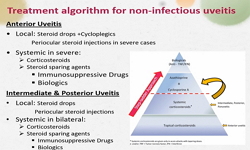Chronic viral hepatitis is the principal cause of chronic liver disease, cirrhosis, and hepatocellular carcinoma. In Korea, of the known hepatits viruses, two can chronic hepatitis: the hepatits B virus(HBV) and the hepatits C virus(HCV). In chronic ...
http://chineseinput.net/에서 pinyin(병음)방식으로 중국어를 변환할 수 있습니다.
변환된 중국어를 복사하여 사용하시면 됩니다.
- 中文 을 입력하시려면 zhongwen을 입력하시고 space를누르시면됩니다.
- 北京 을 입력하시려면 beijing을 입력하시고 space를 누르시면 됩니다.
부가정보
다국어 초록 (Multilingual Abstract)
In chronic hepatitis B, a 4-6 month course of interferon alfa is effective in inducing clearlance of HBV DNA and HBeAg from serum and an improvement in serum transaminase concentration. New approaches to theraphy for hepatitis B include lamivudine and famiciclovir.
In chronic hepatitis C, characterized by an indolent course, but with the potential for development of serious consequences. At present, the only approved agent is interferon alfa, with a sustained biochemical response rate of 10-22%. New approach to therapy for hepatitis C include combination theraphy with interferon alfa and ribavirin.
In this article, strategies for treatment development of chronic B hepatitis and chronic C hepatitis are reviewed.
Chronic viral hepatitis is the principal cause of chronic liver disease, cirrhosis, and hepatocellular carcinoma. In Korea, of the known hepatits viruses, two can chronic hepatitis: the hepatits B virus(HBV) and the hepatits C virus(HCV).
In chronic hepatitis B, a 4-6 month course of interferon alfa is effective in inducing clearlance of HBV DNA and HBeAg from serum and an improvement in serum transaminase concentration. New approaches to theraphy for hepatitis B include lamivudine and famiciclovir.
In chronic hepatitis C, characterized by an indolent course, but with the potential for development of serious consequences. At present, the only approved agent is interferon alfa, with a sustained biochemical response rate of 10-22%. New approach to therapy for hepatitis C include combination theraphy with interferon alfa and ribavirin.
In this article, strategies for treatment development of chronic B hepatitis and chronic C hepatitis are reviewed.
동일학술지(권/호) 다른 논문
-
- 한양대학교 의과대학
- 김동섭
- 1998
-
- 한양대학교 의과대학
- 유대현
- 1998
-
- 한양대학교 의과대학
- 주경빈
- 1998
-
- 한양대학교 의과대학
- 이광현
- 1998




 RISS
RISS







